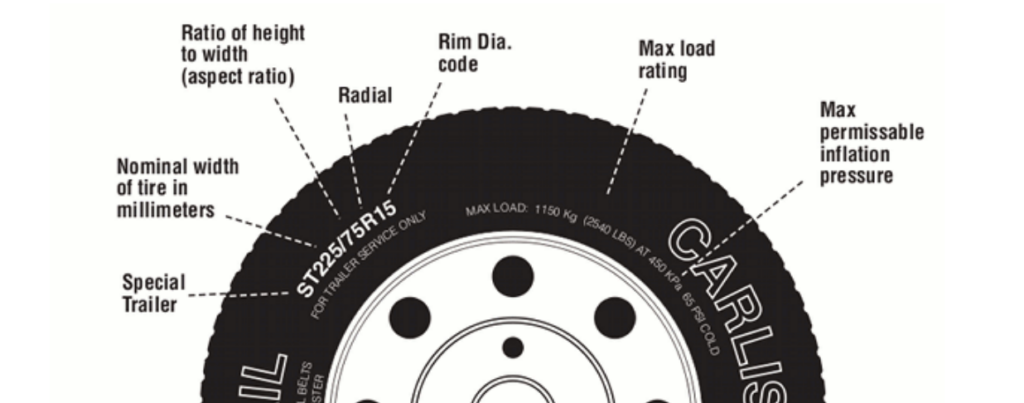The following guide answers the popular question – When Should You Replace Your Trailer Tires on your Trailer?
Trailer tires are not something you should put off replacing. When your tires become too old or worn, they pose a substantial risk out on the road. Worn-down tires can lead to blowouts, a terrifying experience for you, the livestock you’re carrying, and other drivers. A blown or damaged tire can also lead to downtime on your farm and can even cause other parts on your trailer to become worn, damaged, and even resulting in axle repairs.
Read this article to learn about 3 signs it’s time to replace the tires on your farm trailer:
Tread Depth
Your tires need to be replaced when they have 2/32” of remaining tread depth. One quick way to check this is to do the Penny Test.
Simply insert a penny into your tire’s tread groove with Lincoln’s head upside down and facing you. If you can see all of Lincoln’s head, your tread depth is less than 2/32” inch and this tells you it’s time to replace your tires.
Tire Size & Tire Type
Did you know the letters on the side of your tire can tell you which type of vehicle the tires are meant for?
ST – Special Trailer
LT – Light truck
P – Passenger Cars
Different tires are designed for different vehicles because of how rough of a ride the tires can handle. Truck tires are meant to be on vehicles with a suspension system that creates a smooth ride. Farm trailers, horse trailers, and dump trailers typically don’t come with this type of suspension so they need ST tires that can handle the bumpy farm and gravel roads.

3 Signs It’s Time to Replace the Tires on your Farm Trailer
Uneven Tread
Make sure the tread isn’t worn just on the outer edges of the tires or just down the center of the tire. Uneven tread can indicate several issues with your tires or trailer. Possible issues include overinflation, bent or damaged axles, axle alignment issues, and exceeding the trailer’s load capacity.
To keep your tires in great condition for years to come, it’s important to routinely check your tires for damage and excessive wear and tear. As a general rule, tires can last up to 60,000 miles with general wear and tear. When driving in fields, on gravel roads, and on unpaved conditions, your tires are more likely to wear down quicker.
